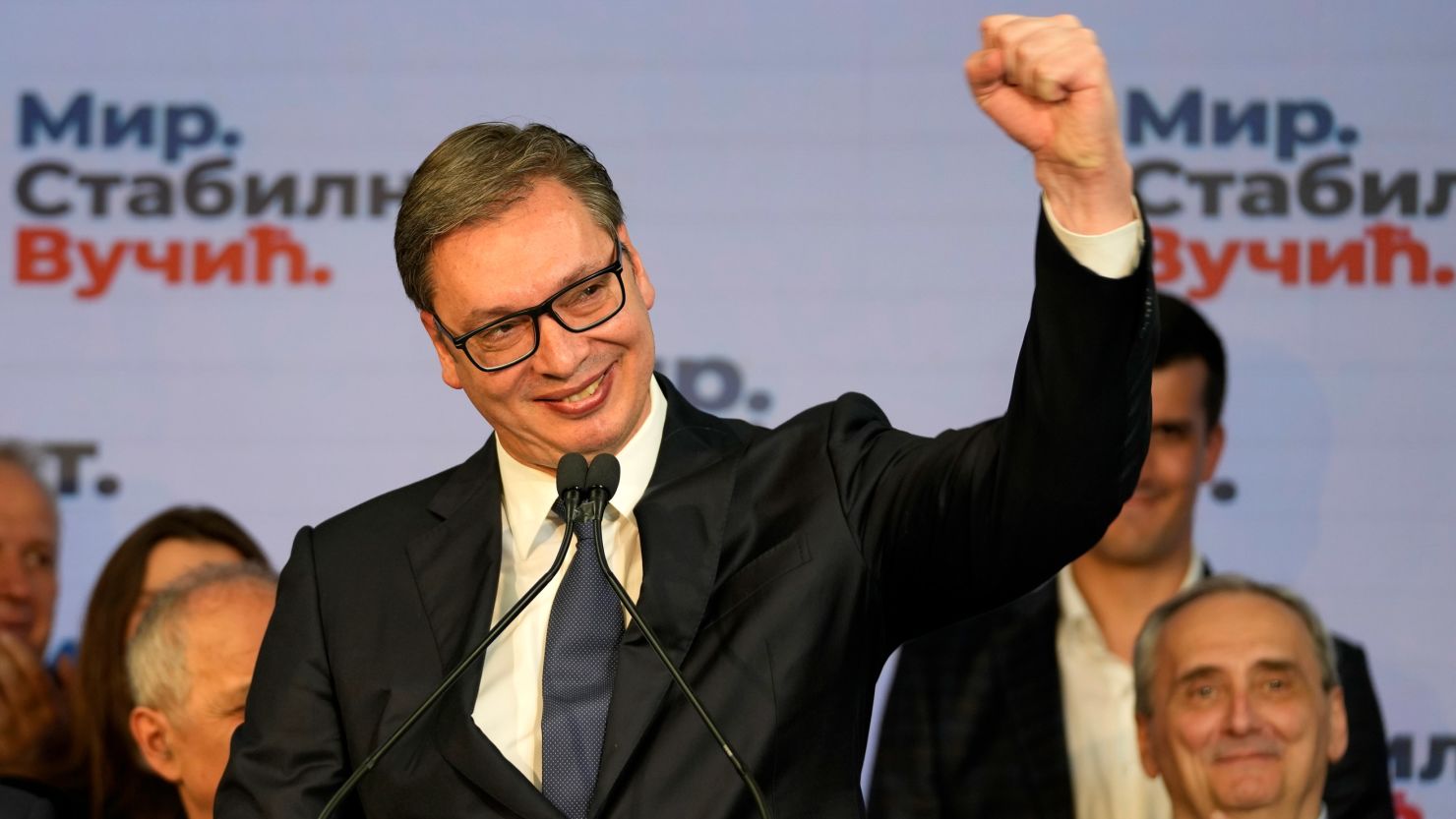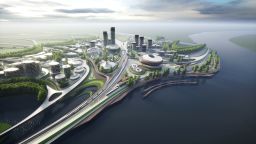Serbia’s incumbent president, Aleksandar Vucic, has secured 59.5% of votes in a presidential election, the State Election Commission said on Monday after counting 87.67% of ballots.
The commission also said Vucic’s ruling Serbian Progressive Party (SNS) won 43.4% of votes in a parliamentary election.
Opposition presidential candidate Zdravko Ponos, a retired army general, garnered 17.5%, while his United for Victory alliance obtained 13.1%.
The Socialist Party of Serbia, a long time SNS coalition partner, came third with 11.7%.
As the SNS would likely fail to secure enough of the 250-seat parliament to rule alone, it will have to seek coalition partners.
According to the commission’s preliminary data, turnout stood at 58.54%.
Vucic ran for a second five-year term on a promise of peace and stability just as Russia invaded Ukraine on February 24, which has put Serbia under pressure from the West to choose between its traditional ties with Moscow and aspirations to join the European Union (EU).
Vucic acknowledged conflict in Ukraine impacted the campaign and said Serbia has no plans to deviate from its balancing game between the EU membership bid and close ties with Russia and China, a major investor.
“We will maintain policy that is important for the Europeans, Russians and Americans, and that is … military neutrality.”
“Serbia will try to preserve friendly and partnership relations in many areas with the Russian Federation,” Vucic said.
Serbia is almost entirely dependent on Russian gas, while its army maintains ties with Russia’s military.
The Kremlin also supports Belgrade’s opposition to the independence of Kosovo by blocking its membership to the United Nations.
Although Serbia backed two United Nations resolutions condemning Russia’s invasion of Ukraine, it refused to impose sanctions against Moscow.
CeSID and CRTA pollsters reported several irregularities, including photographing of ballots.
The opposition largely boycotted a parliamentary election in 2020, allowing Vucic’s SNS party and its allies to secure 188 seats in the 250-seat parliament.
A veteran politician who served as information minister in 1998 under former strongman Slobodan Milosevic, Vucic has transformed himself from a nationalist firebrand to a proponent of EU membership, military neutrality and ties with Russia and China.
Ponos has accused Vucic of using the war in Ukraine in his campaign to capitalize on people’s fears.
Opposition and rights watchdogs also accuse Vucic and his allies of an autocratic style of rule, corruption, nepotism, controlling the media, attacks on political opponents and ties with organized crime. Vucic and his allies have repeatedly denied all those allegations.

